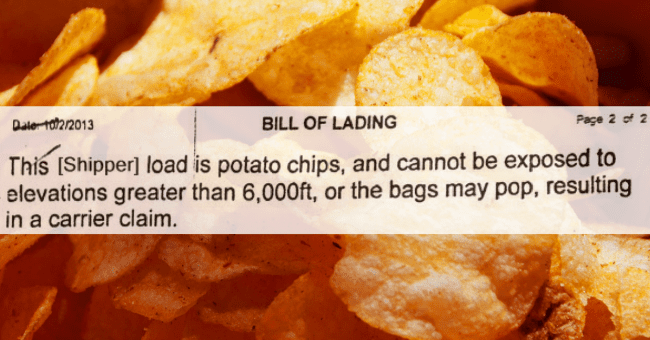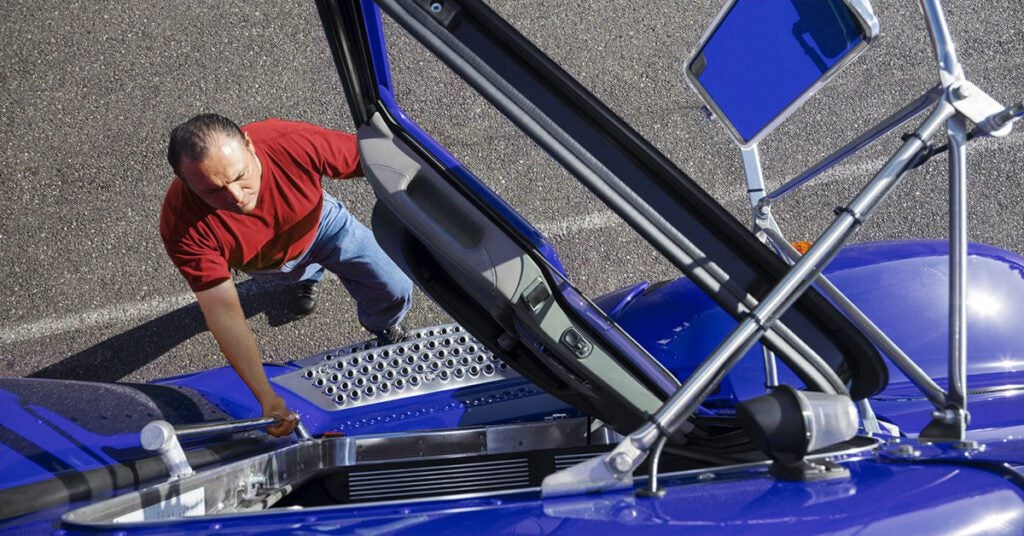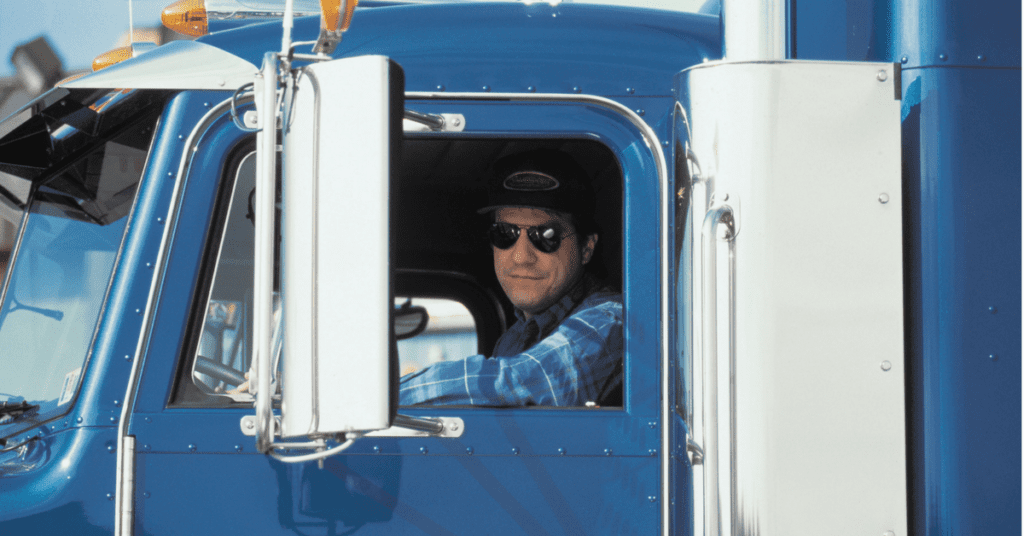The worst load of my career started off as just another day in early October, 2013.
October 1, searching for a load in Prineville, Oregon – I off-loaded in the afternoon. I was unable to find a reload that day.
October 2, picking up in Hermiston, Oregon – I had to call on loads as far as 200 miles away, just to find something that would get me going. At the end of the day, I finally found a load that I liked, picking up in Hermiston. It was 200-plus miles away with a late shipper, and going to a strict, on-time receiver in Cleburne, TX. The cargo was bagged potato chips. I offered to take the load, adding up to 2,069 total miles for $4,000. The broker was not happy, but he decided to give me the load.
I got loaded, and it was time to sign the bill of lading. Everything looked normal at first until I read that this load cannot be exposed to elevations higher than 6,000 feet because the bags of chips may pop. That would result in a carrier claim. I didn’t like that at all, especially because I didn’t know — and had never needed to know — anything about measuring elevation.
 Background image by Leonard J. Matthews
Background image by Leonard J. Matthews
But Hermiston is a dead zone for freight, and I had just deadheaded 200 miles to get there from Prineville, another dead zone. I called the broker to let him know what was going on. He reassured me, saying that the cold weather would keep the bags from popping, and everything would be okay. I didn’t like the whole situation, but I decided to sign for the load, and I hoped for the best. I immediately headed to the nearest truck stop to buy several bags of chips, which I placed on the passenger seat so I could monitor them. If they started to inflate or pop during the trip, I’d know I was in trouble. Then I tried to sleep during my break, but I couldn’t stop worrying that something was going to go wrong with the load.
October 3, driving through Idaho and Wyoming – The elevation kept getting higher, and soon I passed the dreaded 6,000-foot elevation mark. At the top of every mountain, I squeezed the bags of chips on my passenger seat, to see if they were still holding pressure. Meanwhile, the weather went from bad to horrible. Reports from the Casper, WY airport said this was the tenth-biggest snowstorm since 1937, and the third-biggest October snowstorm of all time. I was forced to shut down, because my potato chip-laden trailer was too light for the high winds. The scale station would not let me go any farther east. So I camped out at a nearby truck stop.
October 4, at a truck stop near I-80 in Wyoming – The interstate remained closed to all light-weight trucks, and snow chains were now required to cross the next pass. But I knew that if I didn’t get going soon, I would miss my delivery appointment. I wanted nothing more than to be done with this nightmare load, so I found unrestricted back roads on my map and headed down into Colorado. I figured as long as I drove very slowly, I’d be okay, and the weather would get better to the south. I quickly regretted my decision, as I discovered that other truck drivers had the same idea, and many of their trucks were jack-knifed and stuck in ditches at the side of those back roads. Plus, my visibility was very limited because my windshield wipers couldn’t keep up with the wind-blown snow.
October 6, unloading in Cleburne, TX – The rest of the trip was a blur, but I finally made it to the receiver’s dock just in time for my appointment. I was given the green light and my signed BOL with no remarks. I have never been so relieved. As I headed out the gate, I grabbed a bag of Cheese Puffs from the passenger seat and smiled for the first time in days, knowing that that load was done.
Chad Boblett is the owner and driver of Boblett Brothers Trucking of Lexington, KY. Chad also founded the Rate Per Mile Masters group on Facebook, a communications hub for more than 13,000 members, including owner-operators, truck drivers, and other transportation and logistics pros.


